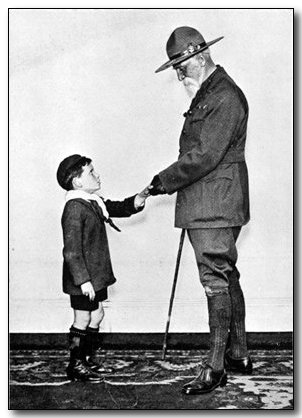 I was skimming this long long post about the demographics and institutional affiliations of the community of climate skeptics, and deep in the body is this fascinating bit.
I was skimming this long long post about the demographics and institutional affiliations of the community of climate skeptics, and deep in the body is this fascinating bit.
UPDATE (December 19, 2009): Peter Staats, in the comments, suggested that belief in anthropogenic global warming is entrenched among scientists and will disappear as the older generation dies (citing Planck, whose point is also made in Thomas Kuhn’s Structure of Scientific Revolutions). I responded that I thought he has it backwards–that AGW has become more and more supported, and the holdouts tend to be older, as some of the data about the anti-AGW organizations above already suggested. So I tested our respective hypotheses against Jim Prall’s data, for IPCC WG1 scientists vs. the signatories of the AGW-skeptical documents. I looked at the average year of the last academic degree awarded, first for those with citation counts for their fourth-most-cited paper >= 200, then, since that was such a small sample for the climate skeptics, for citation counts >= 100, and then for all the 623 IPCC WG1 scientists vs. the 469 signatories of AGW-skeptical documents. Here are the results:
Citation counts of 4th-most-cited >= 200:
IPCC WG1: N=83, 12 w/o year, N=71, average year of last degree = 1981
Skeptics: N=13, 4 w/o year, N=9, average year of last degree = 1965Citations counts of 4th-most-cited >=100:
IPCC WG1: N=201, 51 w/o year, N=150, average year of last degree = 1983
Skeptics: N=38, 15 w/o year, N=23, average year of last degree = 1968All IPCC WG1 vs. AGW-skeptical document signers:
IPCC WG1: N=623, 208 w/o year, N=415, average year of last degree = 1989
Skeptics: N=469, 346 w/o year, N=123, average year of last degree = 1973
In short, the skeptics are 15 years older than their opponents.
My mind is settled on this whole climate issue. But, it would be fun to have a list of other conflicts with a strong generational component. For example, I think I’ve written about how I think Microsoft is caught on the old side of the swing back to data center computing and it’s associate control of the customer and distribution channels. I suspect there is one in the Business schools around platform based business architectures.
In a somewhat related bit, I’m subscribed to various pages at wikipedia. Apparently there is some kind of lower life form that draws satisfaction from swooping into pages and adding “citation needed” after the first period, and so naturally there are mechanisms that chase after this to remove them. This silly activity happened on one page I was watching the first sentence read “Given two similar rewards humans show a preference for one that arrives sooner rather than later.”
And so, I was delighted to stumble upon a possible citation for that. Via Crooked Timber, quoting Richard Tol and his co-authors:
Estimates of utility discount rates for individuals are almost always positive – an estimate of 1.5% is considered plausible for the UK for instance (HMTreasury, 2003) – for the simple reason that humans prefer good things to come earlier rather than later. Given the inevitability of death for individuals, a preference for benefits to accrue earlier rather than later is entirely sensible.
John Quiggin adds:
We can sharpen this up a bit by observing that the average annual mortality probability for adults is around 1.5 per cent, suggesting that this factor alone is sufficient to explain positive time preference.
That whole post is thought provoking but what has been stewing in my head since reading it is how immortals might manifest a very different discount rate than we mortals do. The planet, society, nations, and many corporations act as if they are immortal. This leads to a pervasive mismatch in the discount rate between an group and it’s members. That’s the tension of the prisoner’s dilemma, the gang would prefer that the game continue.
“society, nations, and many corporations act as if they are immortal” — I would believe these kinds of groups believe they are immortal, but otherwise they do not act as if that were true, except possibly in the sense that they do not believe anything can kill them. That can lead to risk-taking no different from the kinds that individuals engage in. Rare indeed is thinking/planning based on survival any longer-term than the present moment.